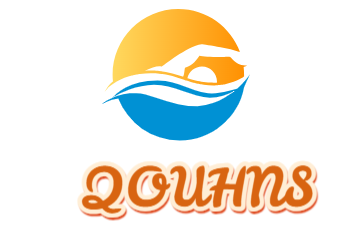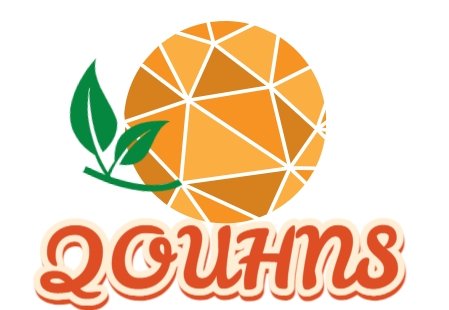
Introduction
As we age, the need for medication management becomes increasingly important. The elderly often have multiple health conditions that require various medications, making it crucial to ensure the safe and effective use of these drugs. In this blog post, we will explore the challenges faced by the elderly when it comes to medication management and discuss strategies to promote their well-being.
One of the main challenges faced by the elderly in medication management is the complexity of their medication regimens. With multiple health conditions, it is not uncommon for older adults to be prescribed several medications to manage their symptoms and improve their overall health. However, keeping track of all these medications can be overwhelming, especially for those who may have cognitive impairments or limited dexterity.
Another challenge is the potential for medication interactions. As the number of medications increases, so does the risk of drug-drug interactions. Certain medications can interact with each other, leading to adverse effects or reducing the effectiveness of the treatment. This is particularly concerning for the elderly, as they may be more susceptible to the side effects of medications and may already be taking medications for other conditions.
Furthermore, the physical limitations that come with age can make it difficult for older adults to manage their medications. Opening pill bottles, reading small print on labels, and organizing medication schedules can be challenging for those with arthritis or visual impairments. These physical limitations can lead to medication errors, such as taking the wrong medication or missing doses.
Additionally, the lack of social support can also contribute to medication management challenges for the elderly. Many older adults live alone or may not have family members or caregivers who can assist them with their medication routines. This can lead to feelings of isolation and make it harder for them to adhere to their medication schedules.
To address these challenges and promote the well-being of the elderly, various strategies can be implemented. One approach is to simplify medication regimens by consolidating medications, if possible. This can help reduce the number of medications and minimize the risk of drug interactions. Healthcare providers can also work with older adults to create personalized medication schedules and provide clear instructions on how to take each medication.
Furthermore, using technology can be beneficial in medication management for the elderly. Pill organizers with built-in alarms can help remind older adults to take their medications at the right time. Smartphone apps and electronic pill dispensers can also provide reminders and alerts, making it easier for older adults to stay on track with their medication routines.
Lastly, involving family members or caregivers in medication management can provide much-needed support for the elderly. Family members can help organize medications, read labels, and ensure that the correct medications are taken at the right time. Caregivers can also accompany older adults to medical appointments and communicate any concerns or changes in medication regimens to healthcare providers.
In conclusion, medication management is a critical aspect of elderly care. The complexity of medication regimens, the potential for interactions, physical limitations, and lack of social support all contribute to the challenges faced by the elderly in managing their medications. By simplifying medication regimens, utilizing technology, and involving family members or caregivers, we can promote the safe and effective use of medications for older adults, ultimately improving their overall well-being.
4. Monitoring Side Effects
Another crucial aspect of medication management is monitoring for any potential side effects. Elderly individuals may be more vulnerable to experiencing adverse reactions to medications due to age-related changes in their bodies. Regular monitoring allows healthcare providers to identify and address any side effects promptly, ensuring the medication’s benefits outweigh the risks.
5. Optimizing Medication Therapy
Proper medication management also involves optimizing medication therapy for the elderly. This includes reviewing the effectiveness of current medications, adjusting dosages if necessary, and considering alternative treatment options. By regularly evaluating medication therapy, healthcare professionals can ensure that the elderly are receiving the most appropriate and beneficial medications for their specific health conditions.
6. Enhancing Communication with Healthcare Providers
Medication management plays a vital role in improving communication between elderly individuals and their healthcare providers. It provides an opportunity for patients to discuss any concerns or questions they may have regarding their medications. Additionally, healthcare providers can use medication management as a platform to educate patients about their medications, including proper administration, potential side effects, and the importance of adherence.
7. Promoting Independence and Quality of Life
Effective medication management enables elderly individuals to maintain their independence and quality of life. By ensuring that medications are taken correctly and as prescribed, seniors can better manage their health conditions and prevent complications. This, in turn, allows them to continue engaging in activities they enjoy and maintain their overall well-being.
8. Reducing Healthcare Costs
Proper medication management can also contribute to reducing healthcare costs for the elderly. By preventing medication errors, hospitalizations, and adverse drug reactions, healthcare expenses can be significantly reduced. Additionally, optimizing medication therapy can help avoid unnecessary medications, reducing financial burden and potential side effects.
In conclusion, medication management is of utmost importance for the elderly population. It encompasses various aspects, including adherence to medication regimens, avoiding medication errors, preventing drug interactions, monitoring side effects, optimizing medication therapy, enhancing communication with healthcare providers, promoting independence and quality of life, and reducing healthcare costs. By prioritizing medication management, the elderly can maintain their health, well-being, and overall quality of life.
5. Financial Constraints
Financial constraints can also pose challenges in medication management for the elderly. Many older adults live on fixed incomes and may struggle to afford the cost of prescription medications. As a result, they may skip doses or cut pills in half to make their medications last longer, potentially compromising the effectiveness of their treatment.
6. Language and Literacy Barriers
Elderly individuals who are non-native speakers or have low literacy levels may face difficulties in understanding medication instructions that are written in complex medical terminology. Language and literacy barriers can lead to misunderstandings, improper medication use, and an increased risk of medication errors.
7. Lack of Health Literacy
Health literacy refers to an individual’s ability to understand and navigate the healthcare system. Many elderly individuals may have limited health literacy, which can make it challenging for them to comprehend medication information provided by healthcare professionals. This lack of health literacy can result in medication mismanagement and poor health outcomes.
8. Medication Costs
The rising costs of medications can be a significant barrier for the elderly in managing their medications. Some older adults may be forced to choose between purchasing their prescribed medications and meeting other essential needs, such as food or housing. This financial burden can lead to medication non-adherence and worsen their health conditions.
9. Complex Medication Regimens
Many elderly individuals have complex medication regimens that involve taking multiple medications at different times of the day. Managing such regimens can be overwhelming and confusing, especially for those with cognitive impairments. The complexity of medication regimens increases the risk of medication errors and decreases medication adherence.
10. Limited Access to Healthcare
Some elderly individuals may face limited access to healthcare services, which can hinder their ability to manage their medications effectively. Lack of transportation, long wait times, or distance to healthcare facilities can make it difficult for them to obtain their medications or seek assistance from healthcare professionals when needed.
These challenges in medication management for the elderly highlight the need for comprehensive support systems and interventions to ensure the safe and effective use of medications in this vulnerable population. Strategies such as simplified medication packaging, medication reminders, caregiver assistance, and improved health literacy programs can help address these challenges and promote better medication management outcomes for the elderly.
8. Implement Medication Education Programs
Another effective strategy for safe and effective medication management among the elderly is the implementation of medication education programs. These programs can provide valuable information and resources to help the elderly understand their medications, potential side effects, and proper administration techniques. By educating the elderly about their medications, they can become more empowered and actively involved in their own healthcare.
Medication education programs can be conducted in various settings, such as healthcare facilities, community centers, or even in the comfort of the elderly individual’s home. These programs can be led by healthcare professionals, pharmacists, or trained educators who specialize in medication management for the elderly. The programs can cover a wide range of topics, including medication safety, adherence strategies, and the importance of regular medication reviews.
During these programs, participants can learn how to read medication labels, identify potential drug interactions, and understand the importance of following prescribed dosages. They can also receive guidance on how to properly store medications and dispose of expired or unused drugs. Additionally, medication education programs can provide tips on how to manage common medication-related issues, such as medication side effects or missed doses.
By implementing medication education programs, healthcare providers can empower the elderly to take an active role in managing their medications. This can lead to improved medication adherence, reduced medication errors, and better overall health outcomes. It is important to ensure that these programs are tailored to the specific needs and preferences of the elderly population, taking into consideration factors such as cognitive abilities, literacy levels, and cultural backgrounds.
In conclusion, implementing strategies for safe and effective medication management among the elderly is crucial to ensure their well-being and optimize their healthcare outcomes. By simplifying medication regimens, using medication reminders, providing clear instructions, organizing medications, involving caregivers and family members, conducting regular medication reviews, and implementing medication education programs, healthcare professionals can help the elderly navigate the complexities of medication management with confidence and ease.

